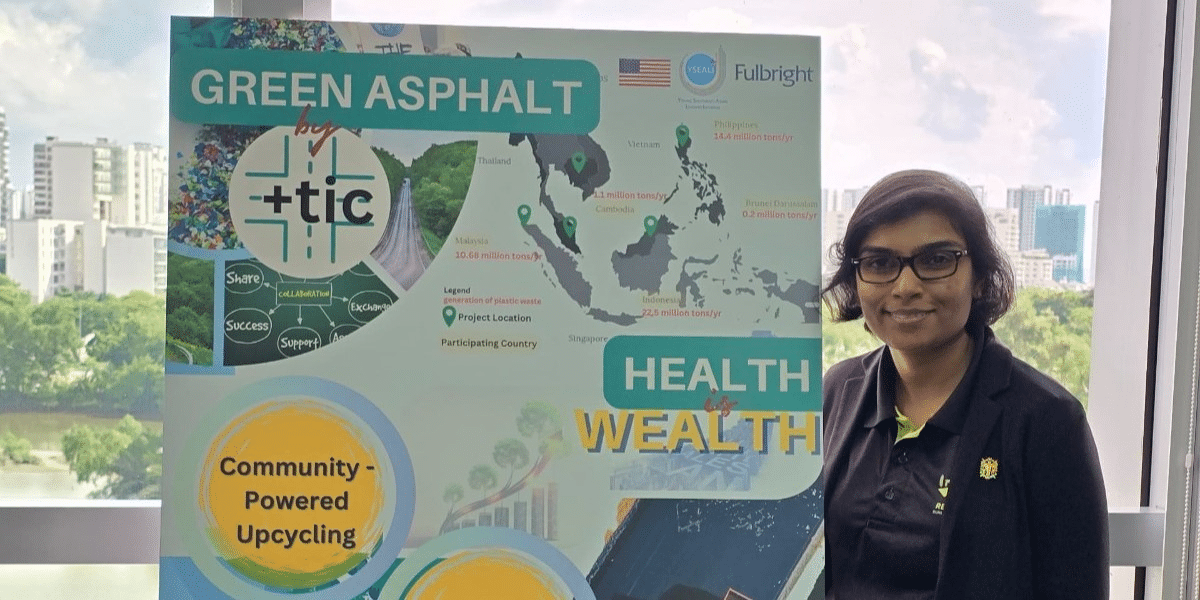In the face of growing concerns about plastic waste, Renergy Bumi Hijau is dedicated to sustainability and community empowerment. Founded by Sumeshini Subramaniam, this impactful company is redefining construction by transforming discarded plastic into green asphalt. More than a business, it’s a mission driven by a personal passion to create a cleaner, fairer world.
With over a decade of experience in renewable energy, sustainability, and plastic waste management, Subramaniam has worked with prominent organizations like YTL Group, Petra Energy, and OBYU Group. Her operations, sustainability, and business development expertise have been key to shaping her vision for Renergy Bumi Hijau. As its founder, she tackles plastic pollution by upcycling waste into a material that reduces environmental harm while providing women with meaningful employment opportunities.
The Inspiration Behind the Mission
The motivation for Renergy Bumi Hijau is as personal as it is ambitious. Subramaniam recalls the frustration of seeing communities stifled by pollution, unable to thrive because of mounting waste. Her goal was to address this issue head-on: to give plastic waste a new purpose and empower people often overlooked in environmental initiatives.
She founded Renergy Bumi Hijau with a dual objective: merging sustainable technology with community empowerment. By involving women from underserved areas in plastic collection and processing efforts, the company reduces waste while providing these women with economic independence and pride in their work.
Innovation Meets Social Responsibility
At the heart of Renergy Bumi Hijau’s success is its green asphalt technology, which incorporates recycled plastic into road construction. This material reduces the need for traditional bitumen, lowering the carbon footprint of infrastructure projects. Beyond the environmental advantages, each stretch of road represents a step toward balancing sustainability and community development.
Entering a traditional industry with an innovative product came with challenges, including skepticism about using recycled plastic as a core material. By focusing on education and transparency, Renergy Bumi Hijau worked to build understanding and confidence in green asphalt as a potential option for construction.
Economic challenges also pose significant hurdles, as sustainable production costs are initially higher. Subramaniam addressed this by partnering with environmentally conscious businesses, local authorities, and investors who understood the long-term value of green infrastructure.
Empowering Women, Driving Change
A notable aspect of Renergy Bumi Hijau’s work is its involvement of local women in waste collection and processing, creating opportunities for economic participation while addressing environmental challenges. One story stands out: a woman who initially doubted the project’s potential later described green asphalt as “a piece of our work and hope for a better place to live.”
This approach, blending environmental efforts with community involvement, highlights Renergy Bumi Hijau’s unique focus. It’s not just about improving infrastructure; it’s about creating opportunities for resilience, pride, and growth.
A Vision for the Future
Subramaniam envisions Renergy Bumi Hijau scaling its impact across Southeast Asia and other regions, making sustainable infrastructure a widespread practice. Her dream is to change how communities perceive waste—not as a problem but as a valuable resource for progress.
Through determination and collaboration, Renergy Bumi Hijau creates roads that represent more than improved transportation. As Subramaniam says, “Every piece of plastic turned into asphalt is a step toward a cleaner, greener, more inclusive world.”
For more information about Renergy Bumi Hijau and its mission, visit renergybumihijau.com.my.
Published by Joseph T.


















